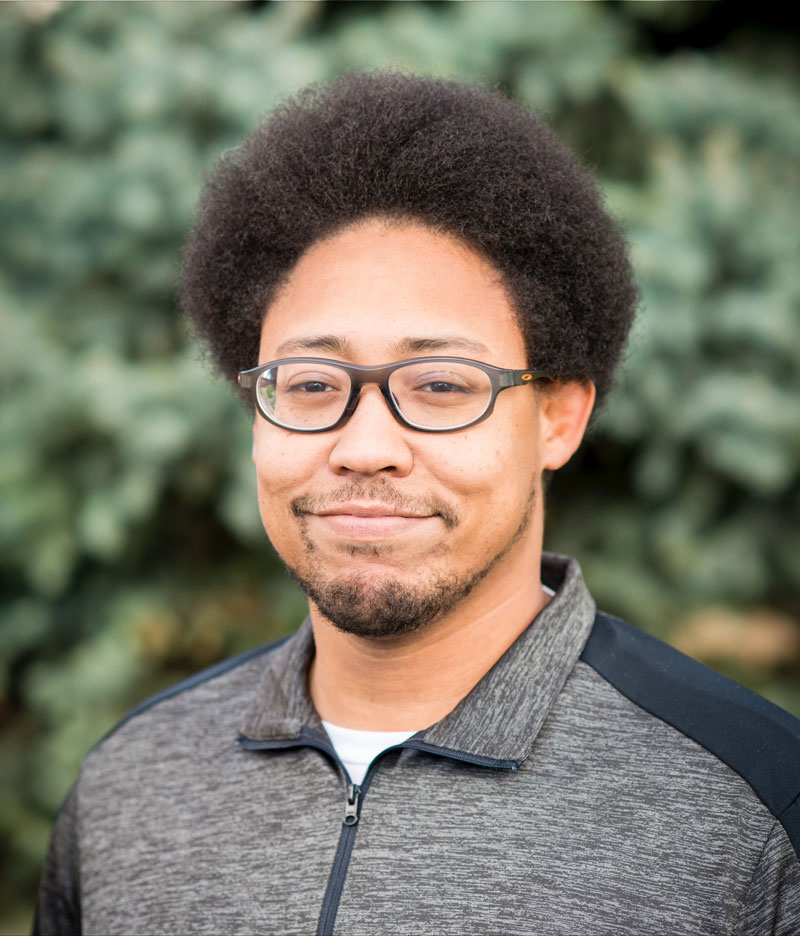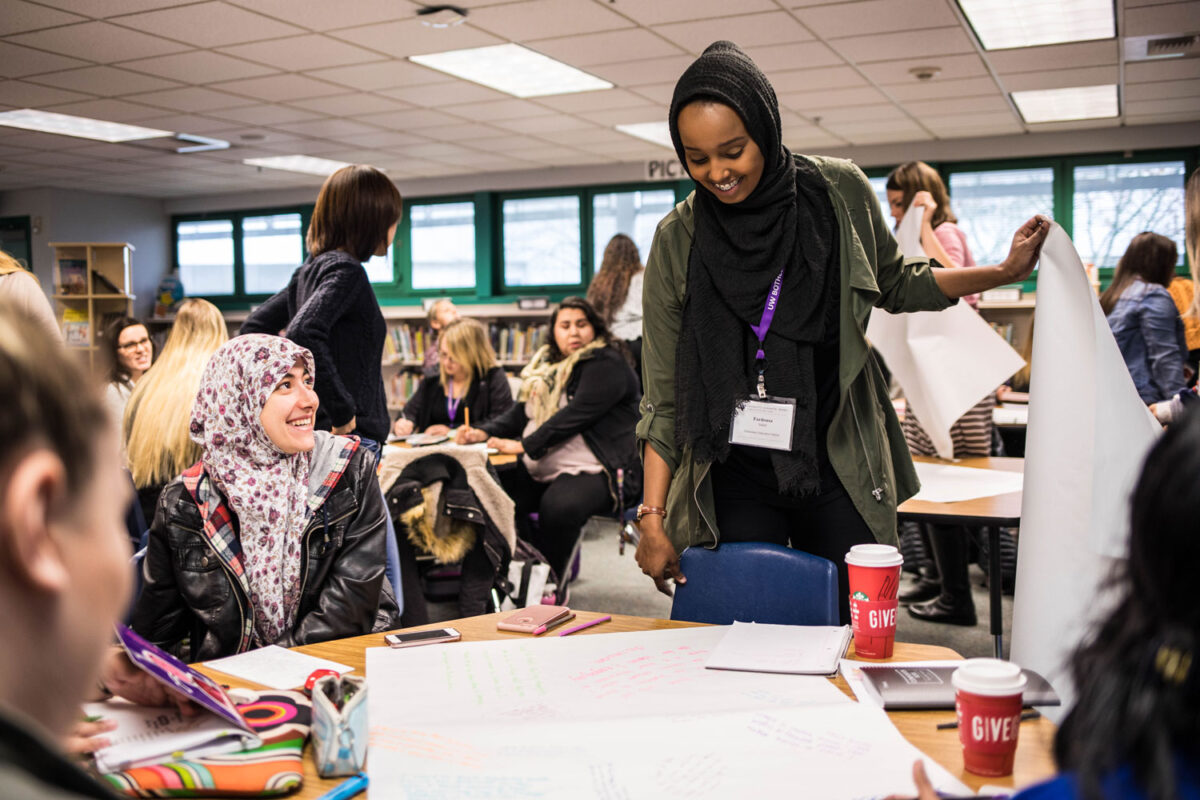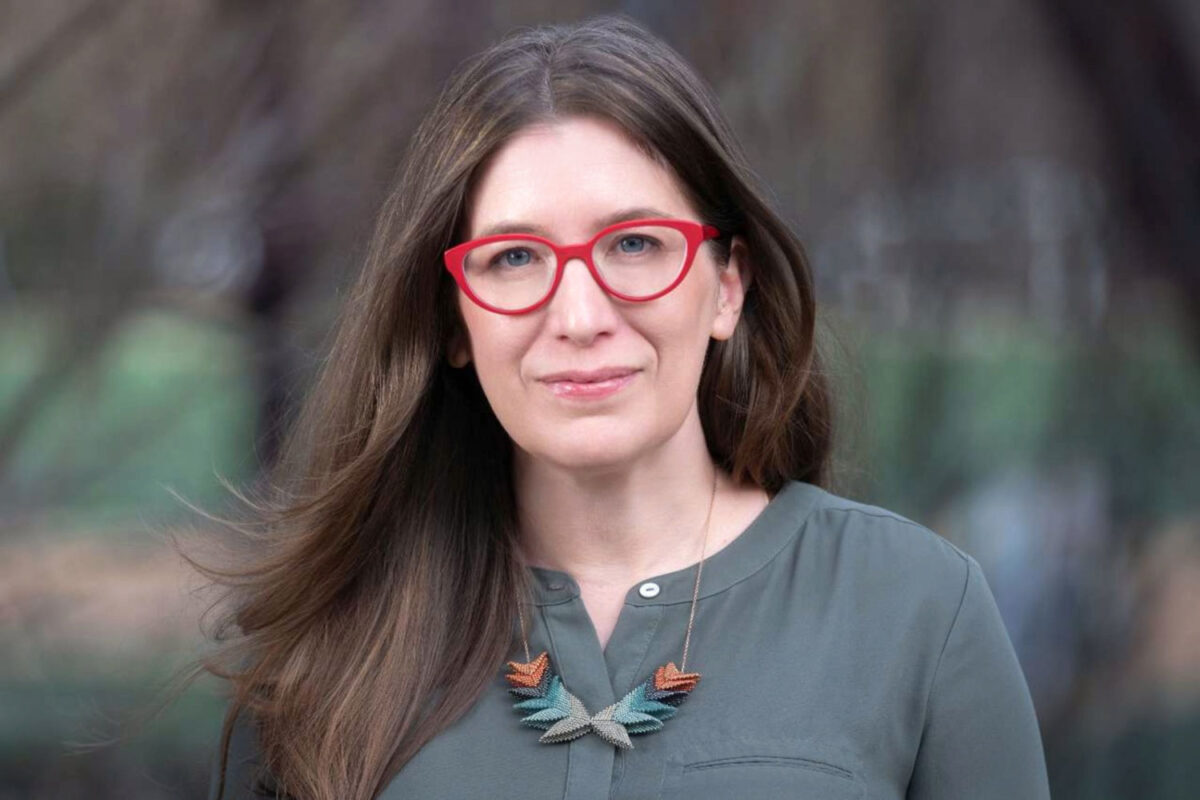Place-based learning is a method of teaching that uses the local community, culture and history of a place as a foundation for study and discussion. It allows educators and students alike to look at a topic or entire course through the lens of perspectives often left uncaptured in more traditional history textbooks.
In winter quarter 2024, Dion Crommarty took an Afrocentric approach in a class called “Place Based Education Through the Prism of Blackness and Black Education.”
“The focus of this course was to really highlight different ways of knowing,” said Crommarty, a lecturer in the University of Washington Bothell’s School of Educational Studies. “We used place-based education to really talk through histories and knowledges of communities but also the African Americans who have been a part of those communities from the beginning and helped build them.”
While the course was open to all majors, he designed it with future educators in mind. From class readings and discussions to hands-on activities and community-engaged projects, the students learned how to build their own curriculum with a focus on Black spaces.
A foray into teaching
Originally from Philadelphia, Crommarty has experience in higher education and student affairs that stretches from Pennsylvania to Alaska. When he began working as assistant director of Residential Life at UW Bothell in 2023, he didn’t expect to find himself teaching a class — or at least, not yet.

“I wanted to be in the student affairs and the academic world but at my own pace and in my own way,” he said. “I always wanted to be in both worlds in a way where I can help advocate for students.”
Crommarty is currently completing his doctorate in Cultural Studies and Social Thought in Education at Washington State University. “In one of my classes at WSU, I started seeing connections between place-based education and Indigenous space teaching methods,” he said. “It brought up a lot of questions for me about being in the community and using it to teach you. Visiting museums and other historic locations started opening questions for me in my research about my own identity and about creating Black space.”
When Crommarty joined UW Bothell, he connected with Dr. Wayne Au, now dean of the School of Educational Studies, who encouraged him to teach a course he had developed for his dissertation.
“He gave me more confidence to teach and said, ‘Let’s make it happen.’”
A Black lens on place
Teaching this course in the greater Seattle area, opportunities abound for examining place through the Black lens, Crommarty said. Students need not look further than the county name — King County — for an example of the rich history of Black places in the region.
“We looked at the community, the music and the culture as a way for students to realize how sometimes creating a Black space or even changing a namesake can come with pushback,” he said.
King County was originally named for William Rufus de Vane King, the 13th vice president of the U.S. and a slave owner, but an effort began in the 1980s to switch the namesake to Dr. Martin Luther King, Jr. Only after a couple of decades of opposition, Crommarty said, was the change made official in 2005.
Along with the dispute over King County’s namesake, Crommarty noted, he and the students in class discussed other examples of contested places, such as Israel, Palestine and Ukraine.
Spaces for learning
Throughout the course, students had multiple opportunities to engage with the concept of community as place, both with guest speakers invited into the classroom and through service-oriented assignments outside the classroom.
“Place-based education is using the community to educate,” Crommarty said. “Because UW Bothell is so community-driven, and we’re a part of this larger, interconnected community, one of the things we talk about in class is reciprocity — when we are working to give back.”
To complete the course’s service component, students each did at least 15 hours of volunteer work in a community-based or education-oriented setting.
Clara Hansen, a junior majoring in Educational Studies, was interested in finding an educational setting and volunteered in a first-grade classroom at Woodin Elementary in Bothell.
“I learned specific tactics for teaching long and short vowels and how teaching styles differ between ages,” Hansen said. “I also learned about how much work goes on behind the scenes of a classroom.
“I am pleased to say my desire to teach first grade was reaffirmed and even grew after spending time at Woodin working with teachers and kids.”
Future educators
Students from all academic disciplines and walks of life can benefit from learning how to think about creating and recognizing Black spaces — both in education, and beyond, Crommarty said.
Initially an Interdisciplinary Arts major, Hansen came across his course when looking to meet new degree requirements after switching majors.
“The description focused on Black people and Black space, which immediately piqued my interested as a mixed Black woman wanting to become a teacher,” Hansen said. “One beautiful thing about this class is that it highlights the good and the beauty of Blackness. It’s extremely refreshing to honor and celebrate Black people by learning about Afrocentricity and the resilient, uplifting histories and ‘herstories.’”
Hansen added that she’s already applied the concepts from the course in her everyday life by sharing them with her family. She recalls Crommarty’s reminder in class that, “We all teach in some form, no matter what profession we choose.”
“I would absolutely recommend this class to other students,” Hansen said. “For Black students and students of color especially because the class material is so empowering, but I also watched students from all different backgrounds get impacted by this class.
“Classes like these build unity and community across UW Bothell.”
It’s extremely refreshing to honor and celebrate Black people by learning about Afrocentricity and the resilient, uplifting histories and ‘herstories.’
Clara Hansen, junior, Educational Studies
From a place of love
As students worked to create their own curricula, Crommarty hoped to impart some of his own experiences, both creating the course for his dissertation and learning by teaching it at UW Bothell.
“The main principle is love,” he said. “Making your classroom feel like home and making sure you care about people. I think that’s really what it comes down to — that students feel like they are loved and cared for with intention and inclusion.”
In addition to teaching this course through UW Bothell, Crommarty will be teaching it at WSU in fall 2024 after completing his doctorate program.




